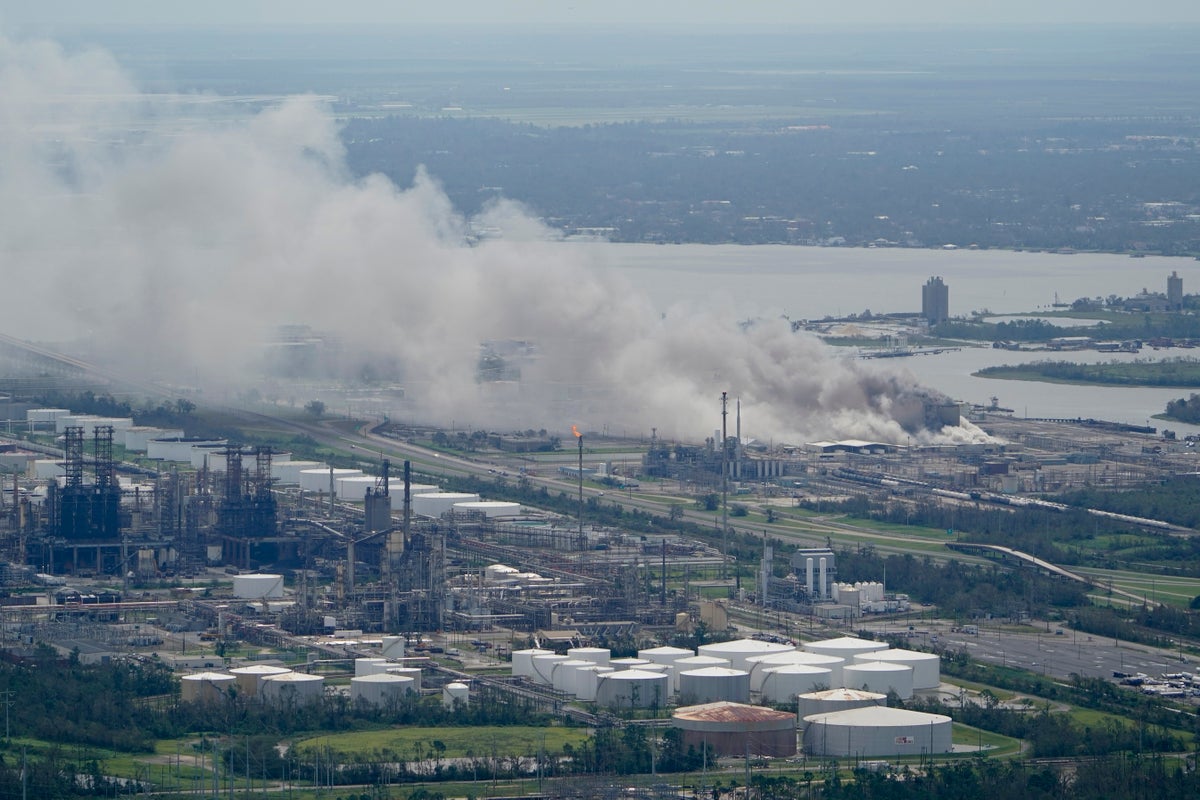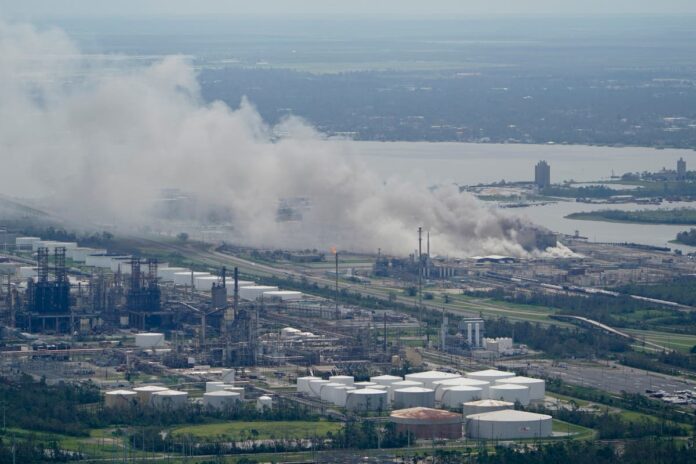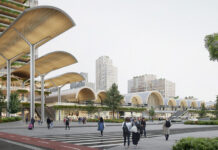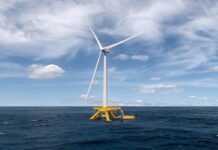[ad_1]

General Russel Honoré, the decorated commander who led evacuations out of New Orleans during Hurricane Katrina, issued a warning on Wednesday over the dangers that Louisiana communities face from from prolific gas industry expansion.
The Army veteran joined local leaders and activists to demand that state and federal leaders halt the construction of more liquified natural gas (LNG) export terminals in the Gulf region which is being repeatedly battered by destructive hurricanes.
The climate crisis is fuelling more extreme hurricanes, and more Category-4 and 5 storms have made landfall in the US over the past five years than in the last half century.
“They are building inside a hurricane zone,” General Honoré said, demanding that petrochemical companies explain what safety standards are in place to protect local communities, many of which are predominantly Black and low-income.
The event was held in Lake Charles, in the country’s petrochemical industry corridor, on the second anniversary of Hurricane Laura.
At least 81 people were killed in the hurricane, largely in Louisiana and the Caribbean nation of Haiti. Losses were estimated at close to $20bn.
In the aftermath of Laura, a fire broke out at a chlorine plant in Lake Charles, forcing residents to shelter in their homes. Many residents had lost power following the hurricane and were forced to seal doors and windows as temperatures and humidity soared.
Lake Charles is close to the Texas border and the city of Houston where in 2017, Hurricane Harvey inundated refineries, storage tanks and chemical plants, unleashing dozens of toxic spills into surrounding communities’ air, land and water.
Southwest Louisiana is home to the country’s burgeoning LNG industry. The US is the world’s largest exporter of the fuel and demand has escalated overseas since the war in Ukraine cut off Russian gas supplies for many European countries which were heavily energy-dependent on Putin’s regime.
The ramping up of “natural” gas also comes at a time when climate scientists and groups like the United Nations and International Energy Agency are pleading with countries to drawdown on fossil fuel use, which has driven the climate crisis. The main ingredient of LNG is methane, a potent greenhouse gas, which has 80 times the warming power of carbon dioxide in the first 20 years.
More than a dozen LNG terminals are being planned along the Louisiana coast.
“Who is this good for?” General Honoré asked on Wednesday. “Do you have good schools and good roads here? Did you recover from the last storm?”
“We are overburdened,” added James Hiatt, from the Louisiana Bucket Brigade, a community activist group which fights petrochemical industry expansion. He called plans for additional terminals “insanity” in an area which sees frequent extreme storms and flooding.
In a statement to The Independent, a spokesperson for the Center for Liquified Natural Gas, which represents large-scale LNG producers in the US, said that “each LNG export facility creates jobs and generates significant tax revenues that support local schools, roads and families in addition to the different projects that they quietly undertake to improve the community”.
“Once operational, it’s estimated that an LNG facility will generate about 5,200 direct and indirect jobs in its lifetime, including more than 200 permanent, new jobs. These are local economic benefits: these benefits are even greater when you take into account the billions generated in taxes paid at the state and national levels,” the statement added.
General Honoré, who leads environmental organization The Green Army, said that industrial expansion would tear up coastal wetlands which act as a natural buffer to slow hurricanes.
He said that dredging local rivers to allow access to large shipping tankers would endanger communities with the threat of more storm surge and flooding.
“Bulldozing the coast opens the door for storm surges to come inland, but dredging the river? That just gives the water a direct path into Lake Charles,” he said.
“I mean, there’s stupid and then there’s stupid. There is no way it can be in the public interest to destroy the cheniers, the wetlands, and the river and turn them into a giant funnel to channel hurricanes into Lake Charles.
“If that isn’t proof that the gas export industry cares only about their profits and not about our communities, then I don’t know what is.”
[ad_2]
Source link















